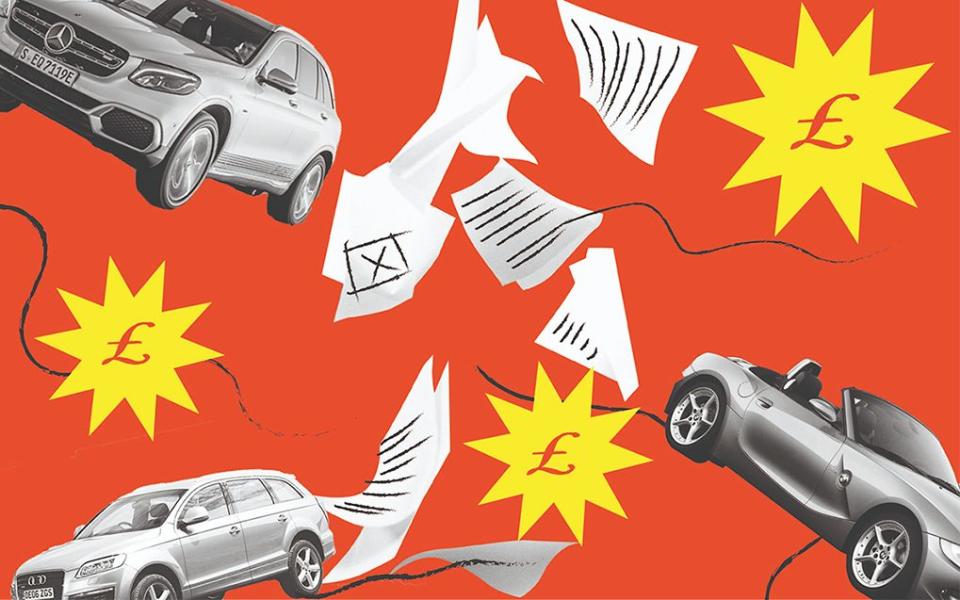Are car leasing contracts good value for money, or should I buy outright?

The idea of owning a car is becoming a thing of the past for many drivers, as more and more motorists have turned to leasing arrangements.
Leasing has been a popular way of financing a car in many countries for decades, but it has been slower to take off in Britain. In recent years however, the sector has steadily grown.
For many, the ability to drive a new car every few years is tempting, as are the lower upfront costs.
But for others the idea of owning a vehicle outright provides peace of mind that cannot be achieved while leasing. On top of this, motorists may be unsure which option is better value for money.
Here we discuss the pros and cons of leasing, as well as the charges the salesman may not make you aware of.
How does vehicle leasing work?
Motorists may be unsure of the differences between the two main types of leases, namely "personal contract hire" and "personal contract purchase" deals. Though similar, there are some key differences to be aware of.
Both deals require an upfront deposit and then charge a set amount each month for an agreed number of months.
With personal contract hire deals, once the term has ended, the vehicle is handed back to the dealer. These leasing deals tend to only be available for brand new cars and are essentially long-term rental agreements.
More popular "personal contract purchase" - or PCP - deals work similarly but give motorists the option to buy their vehicle at the end of the term for a lump sum. Alternatively, they could trade it in for a new model at the end the term, or walk away as with a personal contract hire deal.
While they carry more flexibility, these are financing deals and as such carry interest charges. Most leasing companies will offer the option of a personal contract purchase agreement alongside a standard car leasing deal.
Is leasing cheaper than buying?
Buying a car outright is cheaper in the long term than leasing, but for those who do not want to pay a large lump sum or are more inclined to spread out their costs, leasing may be the more attractive option.
However as leased cars must be eventually handed back, the driver will have no asset to show for their money spent at the end of their contract.
In some circumstances, this can be advantageous. Motorists with leased vehicles will never have to worry about depreciation, for example.
Cars can drop in value as soon as they are driven off the showroom forecourt. For those buying a new car every few years, this can lead to significant losses. Leased car drivers do not have this worry.
Cancelling a lease can carry hefty charges
While rules vary between companies, cancelling a personal contract hire contract early can leave the motorist significantly out of pocket.
While some firms will issue a one-off penalty for cancelling early, in some cases, they may make the driver continue to pay their outstanding monthly fees for the duration of their contract – even if they no longer have the car.
This means if a motorist's circumstances change and they need to change their vehicle partway through their contract, they could face a hefty bill.
Personal contract purchase deals tend to be more flexible than this and often allow motorists to cancel their agreement early without incurring charges if they have paid over 50pc of the total amount payable.
What if I crash?
Leased car drivers will usually be asked to take out a fully comprehensive insurance policy to cover any repair costs should they be involved in an accident.
If the car is written off or stolen, however, the lease company will treat this as if the motorist has bought the vehicle. The insurance company may only cover the cost of the vehicle's value at the time of the incident. If the amount owed is more than this, the driver may have to make up the difference.
Motorists can protect themselves against this by buying "guaranteed asset protection insurance".
Other charges can soon add up
Motorists may be charged at the end of their contract if they have failed to maintain their vehicles properly or have gone over the agreed mileage allowance.
However, those who drive significantly under their mileage allowance would have ended up overpaying for their limited use of the car, so there is a delicate balance to be struck.
Fees can also be incurred for damage to the vehicle, both interior and exterior, missing service history, or missing accessories.
The BVRLA, the car leasing industry regulator, produces an industry-standard "Fair Wear and Tear Handbook" which sets out what level of damage is acceptable.
Most companies also charge to set up a lease deal and cover administration costs. This varies between firms but generally costs no more than £250. Motorists will also be charged a late fee if they miss a monthly payment.
